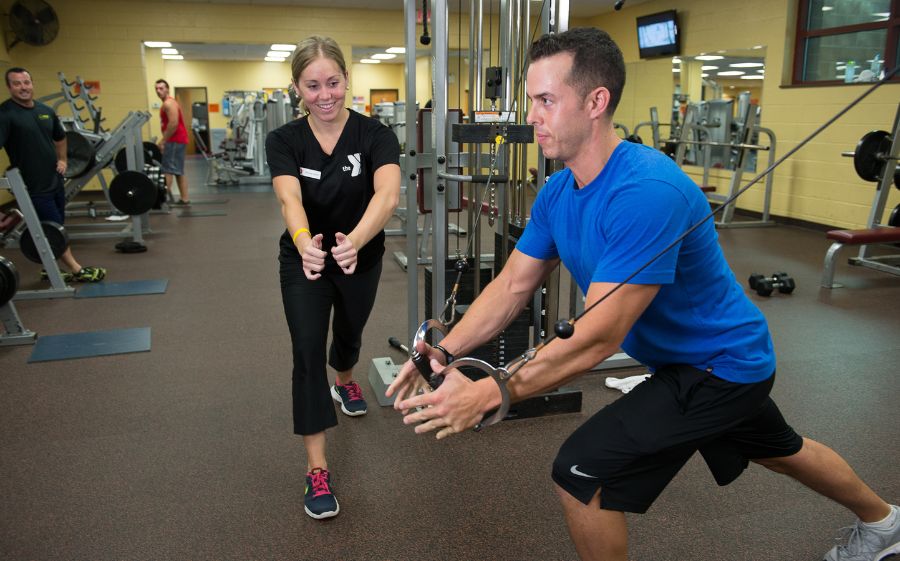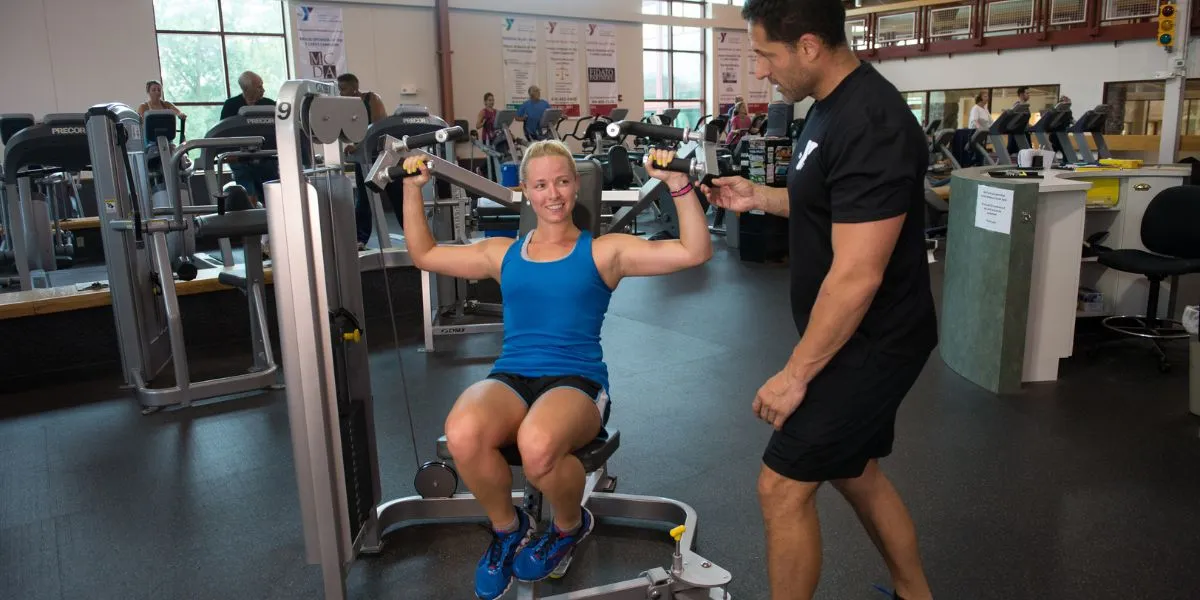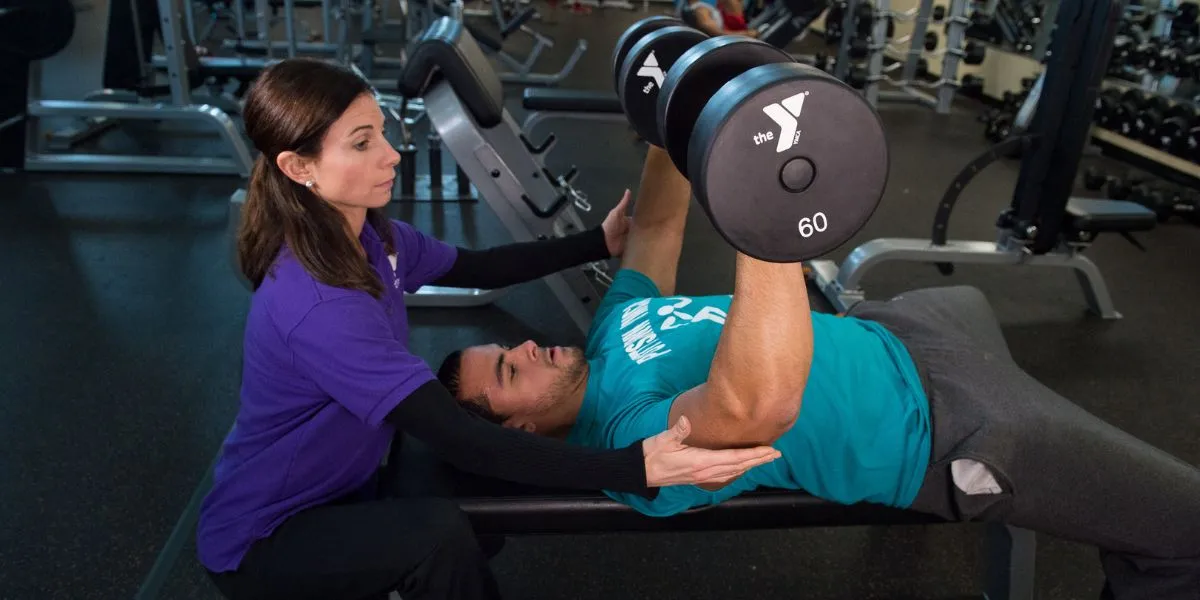
Goals are essential for keeping yourself on track in your fitness journey. Still, they are only effective if they're realistic and you enjoy the process. You can set yourself up for success with various practices, like surrounding yourself with supportive people, setting specific and measurable objectives, and creating daily habits that support your efforts.
Learn how to achieve your fitness goals with these 11 effective tips for meeting objectives with patience and positivity.
1. Understand Your ‘Why’
Think about the physical, emotional, and logistical factors that drive you to achieve your goal. Write down these reasons and put them up on your wall or store them digitally to remind yourself why you're doing what you're doing and to keep you motivated. Visualizing your goal can also help. Visualization may help improve confidence and performance in athletes.
2. Start Small
Try to focus on one goal at a time. A single focus can make it easier to get through the process and improve your chances of achieving your fitness goal. Make sure your first few milestones are attainable, yet necessary. When you're confident you can achieve something, it's because you've already overcome the mental obstacles associated with the goal, which can make it easier for you to follow through with the steps to get there.
3. Break Big Goals Down into Smaller, More Achievable Goals
It often takes a while before you notice results with long-term goals, ultimately leading your motivation to fade with time. Try to break your big objectives into smaller parts with SMART goals. You can create SMART goals for fitness by considering the following elements:
- Specific: Clearly describe what you want to achieve. For example, say, “I want to run X yards without stopping” instead of “I want to get fit.”
- Measurable: Your goal should be something you can easily track and measure. In our running example, you can track your progress toward running that specific distance within a time limit.
- Achievable: While your goal should be challenging, it should also be something you can realistically achieve by a certain date.
- Relevant: Consider whether the goal you are setting will help you get closer to achieving your long-term objective.
- Timely: Set a starting date and a deadline. Having a timeline can motivate you to make an actionable plan that encourages you to acknowledge the smaller milestones that get you closer to achieving the goal.
4. Create Daily Habits That Support Your Goal
Create small daily tasks to help you achieve your monthly goals and turn them into habits. For example, you can do some warmups at home before going for a run to improve endurance and reduce the chances of getting an injury during your run. You might also practice breathing exercises or bring your water along while running to increase the amount you drink per day.
These daily habits may help you focus more and feel that you are actively working toward your goal even when you're not working out.
5. Redefine Your View of Success
Everyone's body is different and will experience faster or slower fitness progress. Remember to be kind to yourself and give yourself permission to alter your goal as you track your progress. When you encounter more challenging tasks, remind yourself of the small things you have achieved so far and that you will achieve your larger goal with time.
6. Consider Professional Advice
If you're unsure about your current fitness level and what type of realistic goal to set, consider getting a fitness consultation with a fitness coach or certified personal trainer. These experts can evaluate your personal situation and provide guidance on realistic goals you can set for yourself. They may even check up on you regularly to track your progress and adjust your goals or set new ones.
7. Make Goals That are Unique to You
When starting your fitness journey, it's common to want to create your goals and fitness plans based on the achievements of fitness influencers and others on social media. The best thing you can do for yourself is focus on your own capabilities and timing to create goals that will be most effective for your body.
8. Regularly Record and Review your Progress
When beginning your journey, record your current state of mind and body to accurately compare it to your progress as you continue your training and incorporate new goals. Track and review your progress regularly to establish whether your schedule or goals need adjusting. This process might involve being gentler with yourself or making things more challenging if you're achieving goals sooner than planned.
You could also use a fitness tracker — whether on paper or a digital log — to record your workouts, daily habits, goal progress and more.
9. Build a Workout Program
Whether you're creating your own workout program or partnering with a personal trainer, building a training program that aligns with your fitness goal is essential. Creating a workout program can help you stay organized. It also gives you an opportunity to dedicate certain days to working on particular muscles and include rest days.
10. Train With Someone
Working with a personal trainer, group class or training buddy can be motivating. It gives you something to look forward to between trainings and surrounds you with people who encourage you to continue pursuing your goals. You can choose from various exciting options for this at the Y, including personal training or going to small group training with a dedicated coach or group exercise classes.
11. Get Nutrition Counseling
To ensure your fitness plan is as effective as possible, make sure you eat a balanced diet that supports your training goals. Working with a wellness coach or a registered dietitian can help you build healthier eating habits and better understand your current diet.
Health and Fitness Programs in the Greater Philadelphia Area
Leveraging these tips for setting fitness goals can help you get closer to the results you want to see. Working out at one of the many fitness centers offered by the Greater Philadelphia YMCA is a great start, but you can also go all-in on your training objectives with guidance from fitness and wellness coaches and support from other people working toward similar goals. At the Y, we dedicate ourselves to connecting you to a healthier lifestyle through our various health and fitness programs.
If you need advice and guidance on goals and exercises to try, we have skilled experts ready to offer fitness consultations. We also offer personal training sessions, small group training and nutrition counseling to improve your goal setting. To get started, browse our various programs today.

